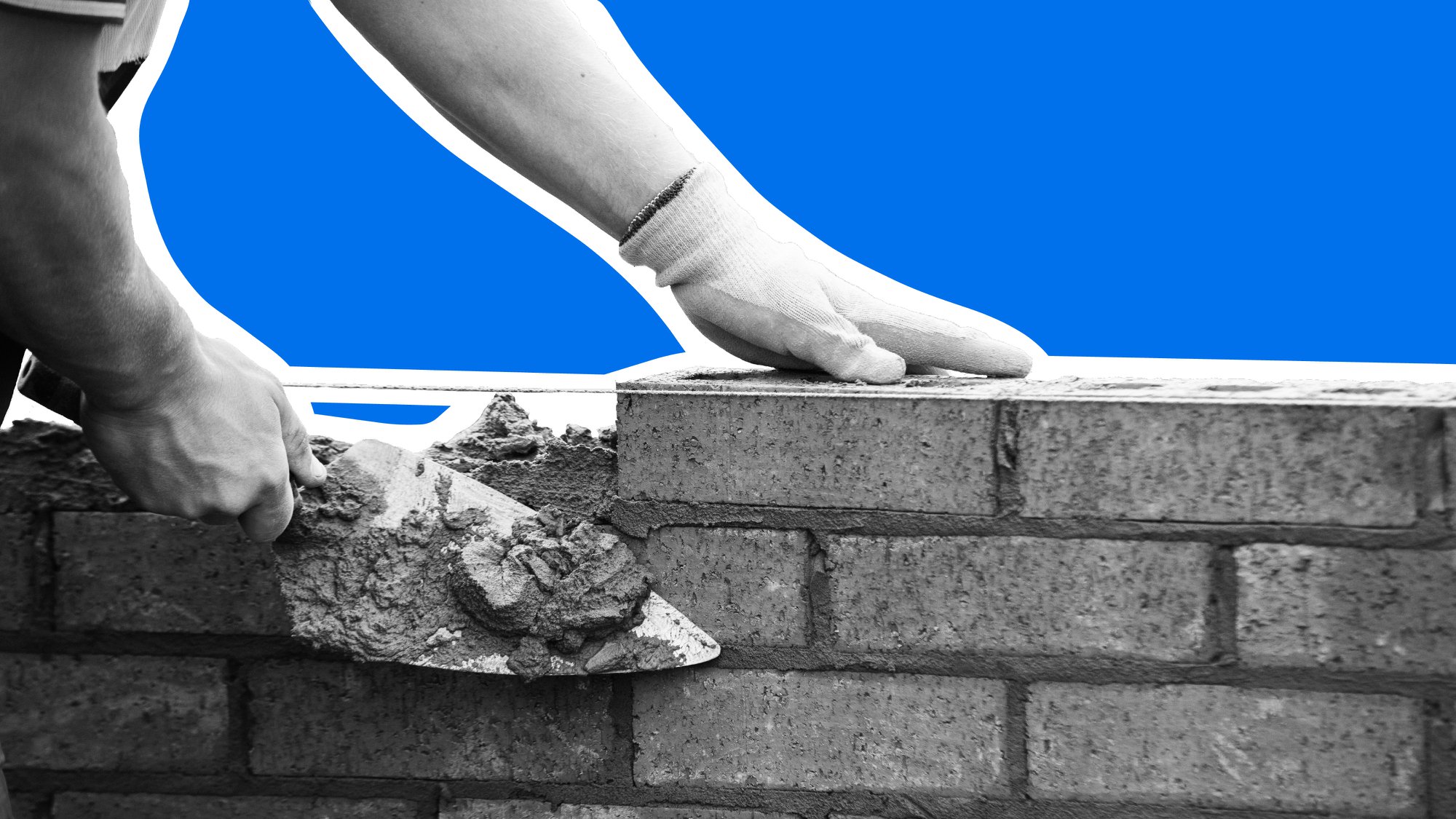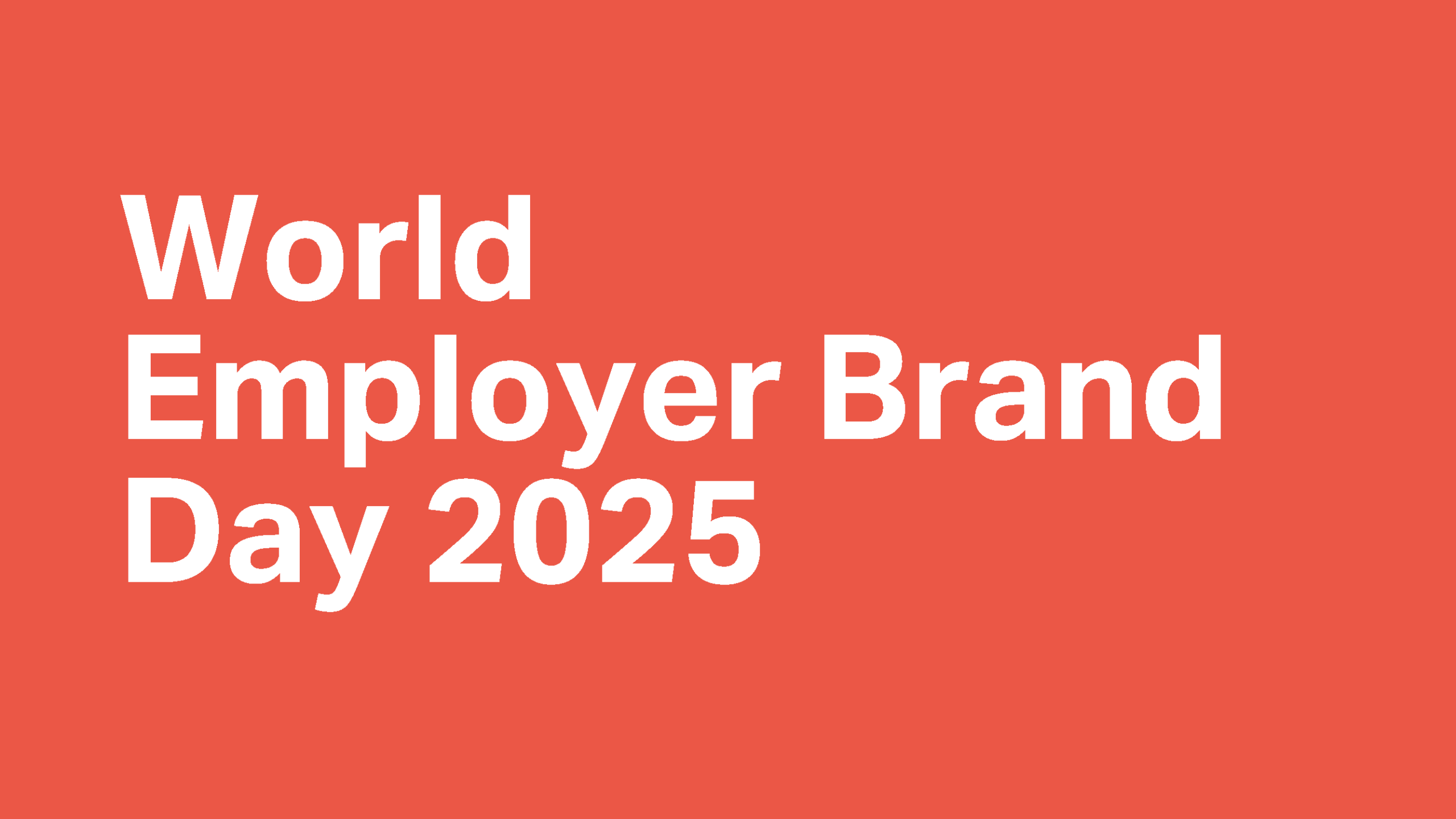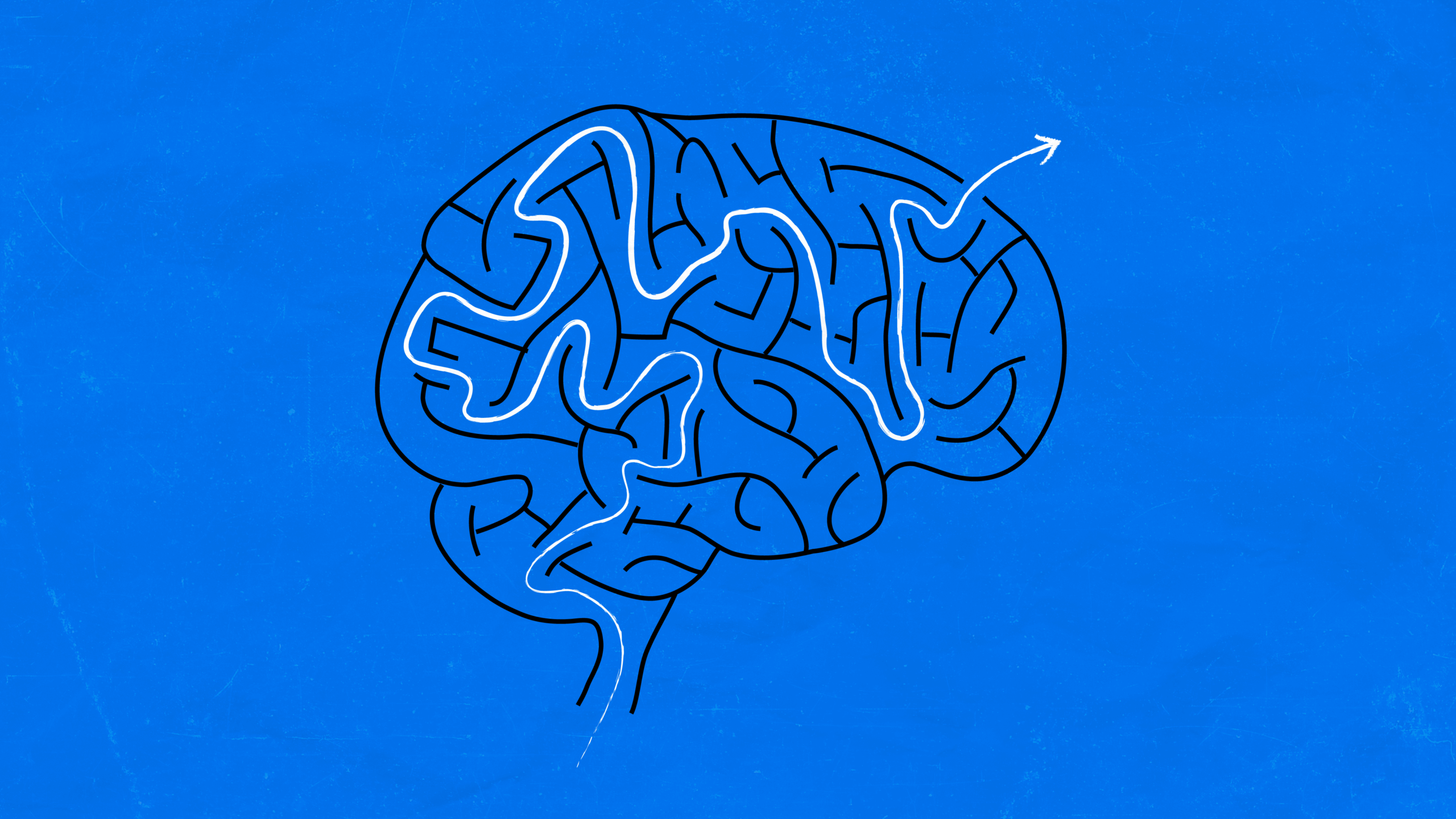Business lessons from The Bear part 6: Chaos
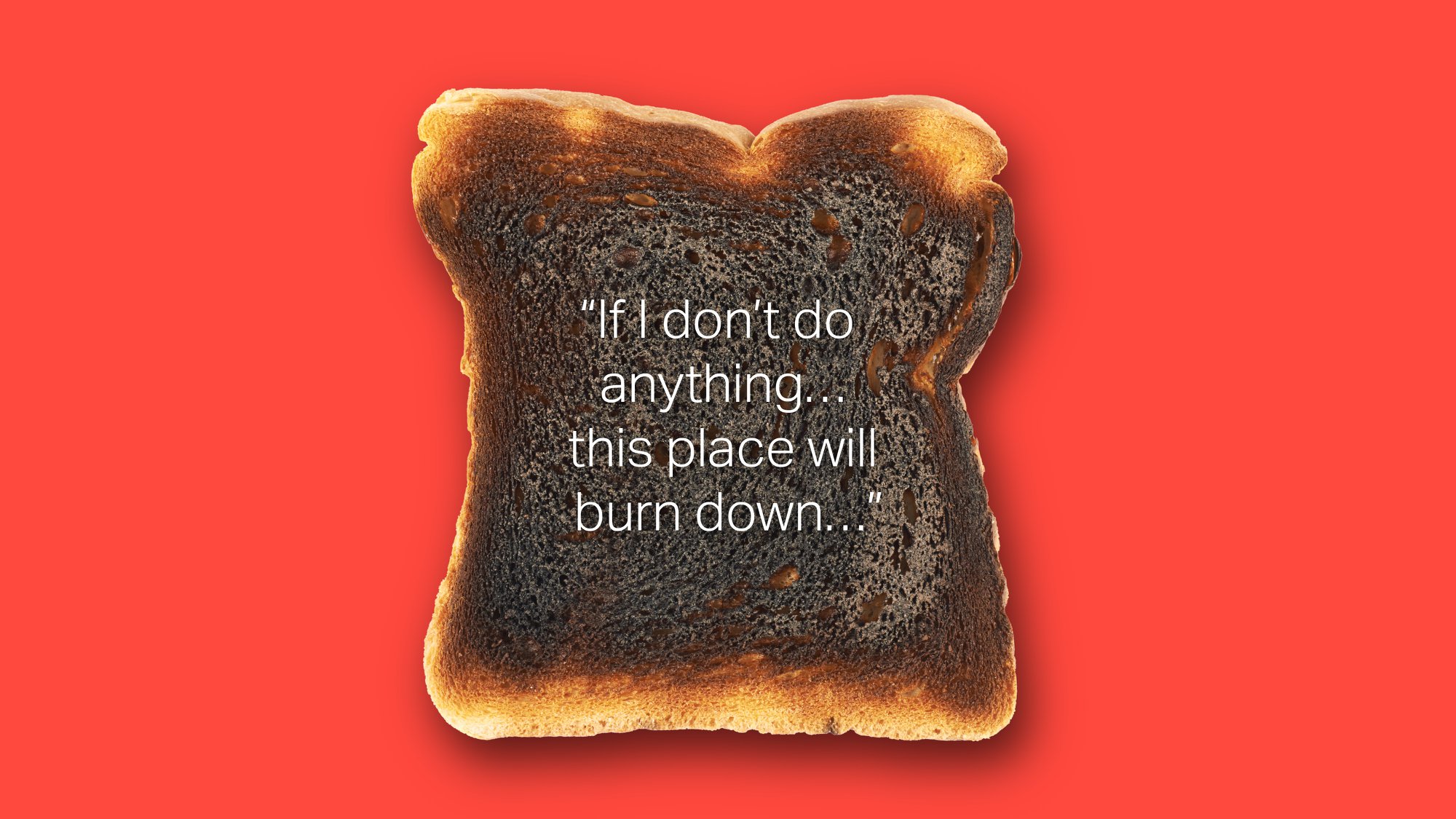
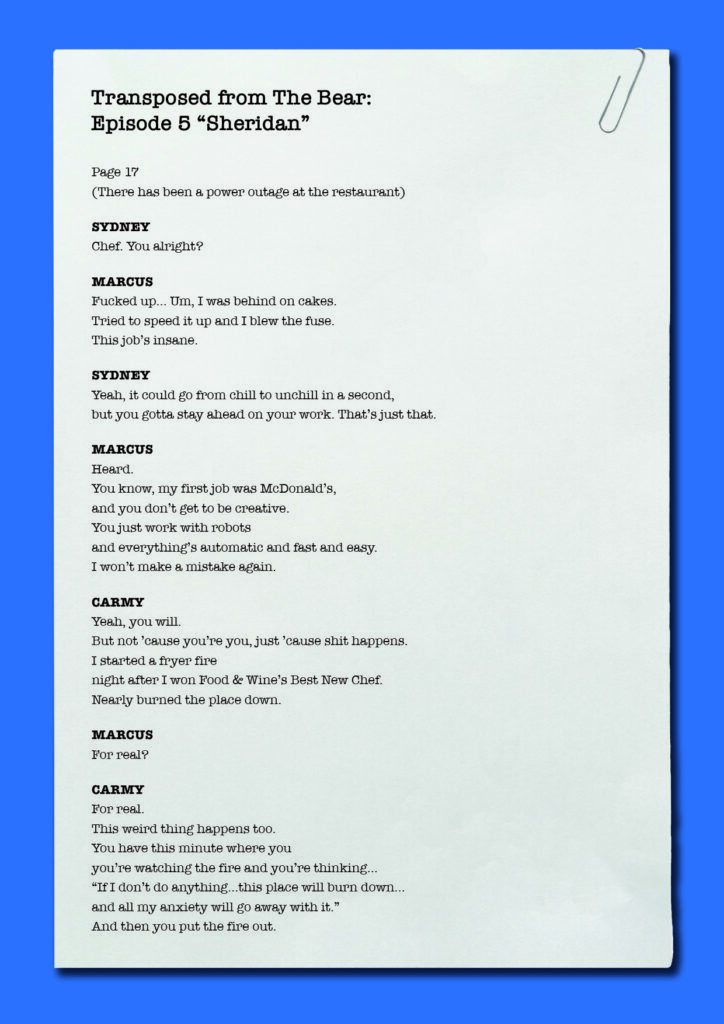
We’ve all been there, right? That moment where we’ve made a mistake – a big one – and our careers have flashed before our eyes.
It’s in that moment that everything stands still. We’re faced with an option. Fess up and learn, or cover it up and hope?
In this case it’s the former, and it results a big dollop of relish-sized leadership learning for the offender, Marcus.
The context
It’s another mad day at The Original Beef of Chicagoland. In the movies, a kitchen can feel like that: chaos. But usually, it’s highly organised, if fast moving. But today at Chicagoland, a series of mishaps threatens to destroy Carmy’s operations.
Together, Carmy and Sydney have worked up a new dinner menu to boost profits. All they need to some calm weather. However, disaster strikes when a blocked toilet results in mayhem culminating in a fight during which it’s revealed that Richie – the front of house manager – has been selling cocaine in the alley behind the restaurant. This was a non-core practice that he had begun during COVID to keep the business afloat. It’s what might best be described as a compromise to the core purpose of the business, and that is stretching politeness to the extremes.
The situation gets further out of hand when Marcus, distracted by his experiments with fermentation for a new pudding, neglects his main baking duties. In his rush to catch up, he overloads a mixer which causes a fuse to blow and knock out the kitchen’s entire power.
Let’s just say it’s a bad day. But they happen. Think of Heathrow’s recent meltdown when it lost power due to a power station fire, or TSB’s banking failure during a failed IT migration. What matters is what you do next.
Business Lessons: From Plan B to Plan A

With the walk-in fridge down and all the food stock at risk of perishing, the team try to work out how they are to save the food with no kitchen in operation.
It’s Sydney who steps up by suggesting Chicagoland fire up an old barbecue in the parking lot outside the restaurant. The result: an outdoor lunch service.
Out of adversity comes not only an idea that saves the day, but one that goes on to prove out what eventually becomes another customer offer – the side window – a kind of walk-thru service for Chicagoland sandwiches.
And what of leadership? Well it takes the form of Sydney showing the way with an idea that keeps the business moving and it also takes the form of Carmy helping the team to learn from their mistake.
A lot is made today of encouraging people to learn from mistakes, to fail fast, and to see every experience as something to learn from. But that can only happen if leaders create the environment in which this can happen.
In 2020, People Management reported on research suggesting that 40% of 1,000 employees surveyed estimated they spent between 20% to 40% of their time worrying about making mistakes.
So what does restaurant boss Carmy do differently? He confronts his own anxieties and mistakes. and shares a true story of vulnerability with Marcus. He makes the experience and the inevitability of failure in a kitchen environment real and to be expected. And most importantly, he talks about how he learned from his experience.
It’s that leadership storytelling that helps a talented chef like Marcus learn fast.
In the end, the team at Chicagoland have come through a crisis together, with scars maybe, but with lessons learned.
Because, as Julius Caesar is alleged to have said, “Ut est rerum omnium magister usus.”
How leaders respond matters more

Both Marcus and Carmy have made mistakes. What matters is learning from them and moving forward.
Developing resilience and adaptability can lead to quick thinking and creative solutions. Sydney’s refusal to give up in the face of adversity not only saves the restaurant’s lunch service it empowers the team and results in a new idea.
Marcus’s admission of his mistake shows integrity and a willingness to learn and grow from his own personal mistake. His courage comes from admitting his error.
And lastly, Carmy’s leadership comes from guiding the way by showing his own vulnerability. He is a role model for Marcus by showing that the way forward is one that has been experienced before by many other highly talented chefs. And, he does not encourage a repeat of the error, but he contextualises it. He grows Marcus’s confidence.
Carmy’s willingness to share his own failures and anxieties with Marcus builds trust and shows that vulnerability is a strength in leadership, not a weakness.
Business lessons: the business argument
- Removal of worry can drive productivity. Insight magazine looked more deeply at the data cited above and found that more women and younger professionals worried about making mistakes than men. This should make us wonder why men’s attitude to risk is more relaxed, just as we should be asking how we can turn that ‘worry’ into an attitude where curiosity, experimentation, and learning are the norm.
- Pressure and burnout and the relentless pressure of work life and toll it can take on mental health are relentlessly reported in the media. Creating a culture where learning without fear is the norm helps to address any detrimental effect on mental health.
- The culture of fail fast and learn works. It can fuel new business revenue streams, especially in a crisis. According to McKinsey research, during the Covid crisis innovation leading to new business thinking exploded. What has happened since then? Look around your own business and ask.
What you can do

- As a leader, create the culture where teams can learn fast from mistakes. That’s not about creating a culture where risk or making errors is accepted as a trade-off against quality – it’s about encouraging teams to look at every outcome and asking what can be learned from the experience.
- If you are going to empower people, then empower them. Don’t just say the words. Let them know what the parameters for experimentation and decision-making are. Too many businesses talk about empowerment but don’t let their people know what this looks like.

